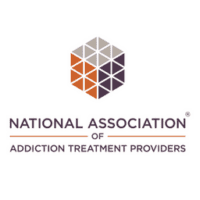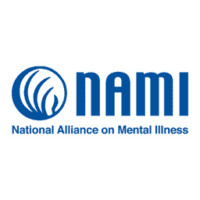Teen Anxiety Treatment
Anxiety is among the most common mental health disorders in teens. Here you’ll learn about the signs, symptoms, and treatments for teen anxiety.
Anxiety disorders refer to feelings of anxiousness that don’t go away and worsen with time. These feelings often affect a person’s day-to-day responsibilities.
Teens often face a number of challenges that cause them to feel stressed, sad, or anxious. Teenage anxiety goes beyond the normal feelings that many young people experience.
Find personalized treatment for your teenager at one of our mental health centers, where we specialize in age-specific treatments for the unique circumstances your child is facing.
Although anxiety is a mental illness, it can also affect the body and present physical symptoms.
Some common signs and symptoms of anxiety disorders in teenagers can include:
Sandstone Care provides age specific care for those who struggle with substance use, mental health, and co-occurring disorders. We have treatment centers throughout the United States.
The Continuum of Care
Access a full range of treatments for mental health and substance use disorders. Whether you need a safe transitional living community, inpatient care, or outpatient therapy, we have a program to help.

Sandstone Care is here to help. Even if we’re not the right fit, we’ll help you find and take the next step to treat teen anxiety.
Yes, anxiety is a mental illness.
There is a misconception that anxiety is not a real problem and that everybody deals with it.
While many people may get anxious from time to time, anxiety disorders are a mental illness and should be taken seriously so that people, especially teens, can get the help they need.
Being a part of a strong support network helps the whole treatment and recovery process.
A teenager’s parents can help by being present and open. Ensure them that you are there to support and help when they need you.
If your teen is struggling with anxiety, you can help get them treatment and helpful resources by reaching out to their health care provider.

Different types of anxiety disorders include:
Someone with GAD worries about everyday issues such as school, work, and family. However, a person will experience these worries almost every day for at least six months.
Someone with panic disorder will experience panic attacks. Panic attacks refer to a sudden wave of fear or discomfort based on perceived danger rather than imminent danger.
Someone with a phobia has an intense or excessive fear of something that commonly poses little or no harm.
A child with separation anxiety experiences extreme anxiety when they are apart from their parents or family. Children with separation anxiety may fear being lost from their family or that something bad may happen while they’re away.
Struggling with mental illness can feel isolating, and it can be hard to believe that anyone else would understand what you are going through.
CBT can help teens build skills and techniques they can use for the rest of their lives.
Cognitive-behavioral therapy (CBT) is a form of psychotherapy that helps a person to identify negative thoughts and feelings that may lead to destructive behaviors.
DBT is used as an effective approach for many different types of mental health disorders.
DBT focuses on four main skills: mindfulness, interpersonal effectiveness, emotion regulation, and distress tolerance.
Group therapy can help by creating connections and allowing teens to open up about difficult feelings and experiences to learn from one another.
Family therapy opens up a line of communication for the whole family to share their feelings and experiences so they can better understand one another.
Teens are equipped with tools they can use to reach their goals which can build their confidence and help them to live the lives they want.
The single cause of anxiety is unknown. However, certain life experiences and habits such as traumatic events or self-medicating can increase the likelihood of developing anxiety. Social media can also play a role in the mental health of teens and young adults. Social media can contribute to issues with self-esteem, self-worth, and a teen’s body image because of unrealistic standards.
General risk factors for anxiety disorders can include:

Anxiety can affect many aspects of a teenager’s life and overall well-being.
It can make it difficult for teens to interact with others in social situations for fear of being rejected or made fun of. Anxiety can make a teen feel isolated and impact their self-worth and confidence.
Anxiety also affects everyday responsibilities like school and family life. A teen with anxiety may have trouble performing in school and they may find it difficult to feel motivated and achieve things they once wanted to do.





If your child is having problems in school or with friends and family because they constantly feel anxious or nervous, it is time to get help.
If you notice that your child may have anxiety or shows warning signs of anxiety, it is important to seek help from a professional such as their healthcare provider.
Teens with anxiety may also turn to substance use as a way to self-medicate. Substance use disorders and mental health disorders like anxiety commonly co-occur with each other. Each disorder can cause symptoms of the other to worsen.
Early intervention is important and effective if your teen is struggling with substance abuse.
Try to be patient, open, and understanding. Remind them that you are there when they need you.
One thing you can do to help teens who experience anxiety is by educating yourself. The more you know, the better you can understand warning signs, how to help, and treatment options, if needed.
Having strong and healthy communication between you and your teen goes a long way. Giving them a space where they can express their feelings and what they are going through can help you understand how to give them support.
The way you respond to things can make a difference. When you yell or get angry when they share their feelings with you, it can make them feel uncomfortable going to you and lead them to suppress their feelings and experiences.
Encourage healthy activities, stress-relieving techniques, and coping mechanisms. Going outside, exercising, journaling, and practicing healthy eating and sleeping habits are all examples of ways teens may manage anxiety symptoms.


5040 Corporate Woods Dr., Virginia Beach, Virginia, 23462
(888) 850-1890

16325 S Harlem Ave #260, Tinley Park, Illinois, 60477
(888) 850-1890


195 N Arlington Heights Rd #101b, Buffalo Grove, Illinois, 60089
(888) 850-1890

5735 N. Academy Blvd, Colorado Springs, Colorado, 80918
(888) 850-1890FAQs
Our goal is to provide the most helpful information. Please reach out to us if you have any additional questions. We are here to help in any way we can.
Yelling at a child can lead to a number of different negative outcomes.
Yelling can cause feelings of shame, hurt, and sadness. Over time, the stress that comes with these feelings may contribute to developing mental health disorders such as anxiety or depression.
Yelling can cause children to become more aggressive because it is the behavior that they are used to seeing and experiencing.
It is important to consult with your teen’s doctor and their treatment team on whether anxiety medication is the best course of treatment.
Treatment plans should be individualized and designed specifically for each person’s unique needs. What works for one teen may not work for another.
It can sometimes take different approaches to find what treatments work best.
Sometimes, therapies can produce the same or even better results than medication for anxiety.
Some parents or teens may be hesitant to take medication for anxiety. It can be helpful to try various therapies to determine the effectiveness and whether medication is even needed.
Some medications can cause common side effects such as drowsiness, headaches, or dizziness.
It is important to consult with your health care provider on whether or not anxiety medication is safe for you or your teen and what your options are.
Natural remedies for anxiety involve healthy habits.
Staying active and outside can help your body naturally regulate and improve your mood.
Eating a balanced diet and limiting the amount of caffeine you drink can also play a role in managing anxiety symptoms.
Practicing mindfulness helps a person be present in the moment and increase their self-awareness. Examples of ways you can practice mindfulness are through meditation, journaling, or slow breathing.
Some people may also turn to natural vitamins or herbs to help with anxiety symptoms. It is important to consult your doctor before taking anything to ensure it is safe to use.
Some research suggests that antihistamines like Benadryl may help manage some anxiety symptoms.
However, it is important to consult with your doctor to determine the safety of its use.
There is not much research on the safety and effectiveness of Benadryl being used as an anxiety treatment, and it is not commonly prescribed for anxiety treatment.
The National Institute of Mental Health reported that an estimated 31.9% of adolescents ages 13 to 18 had an anxiety disorder.
Anxiety and depression are two of the most common mental health disorders that young teens struggle with.
It is completely normal for a 14-year-old to have anxiety, and there are different therapies and treatments that can help young teens.
According to Child Psychiatry and Human Development, overcontrolling behaviors may be linked with feelings of worry that can contribute to anxiety. Parents typically aren’t the sole cause of anxiety in teens, but a teenager’s home environment and stress levels can play a role in developing anxiety.
Puberty involves many changes in adolescents, both physically and mentally.
According to Developmental Neuroscience, puberty can be associated with an increased vulnerability to certain anxiety disorders.
Puberty can involve changes to a teen’s body and hormones. These changes can impact a teenager’s self-esteem, self-image, and self-worth. These feelings can contribute to anxiety.
The 3 3 3 rule is a mindfulness technique that can be used for children and teens with anxiety.
You start by looking around and identifying three things you see. Then, name 3 sounds you hear, and lastly, move three different types of your body.
This technique can help young people be distracted from their worries and be present in the moment.
Some children’s anxiety may come from the environment they are in.
It is important that you keep in mind that your words and actions have an impact on your children. Maintaining healthy communication, environments, and relationships between your children makes all the difference.
However, it’s important not to place blame for the cause of anxiety in your children. Rather, be involved in the treatment and recovery process to best help your teen.